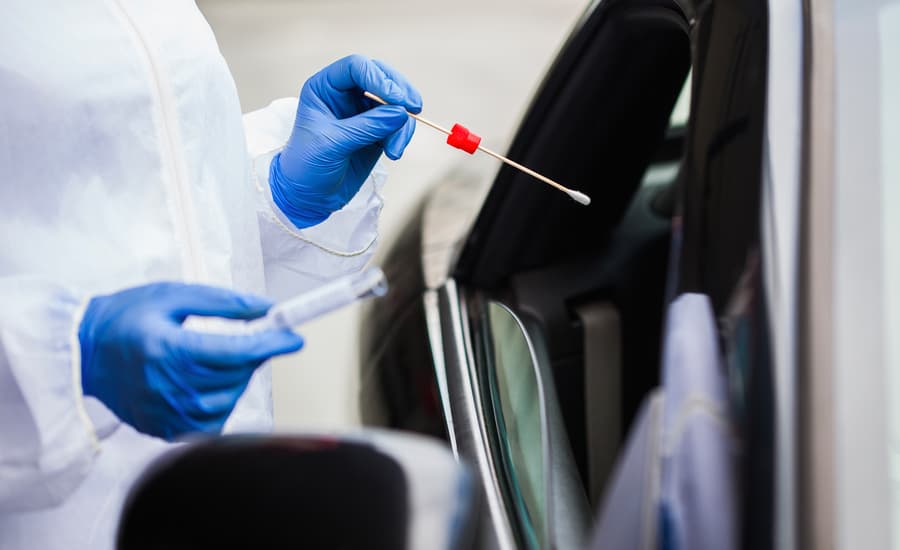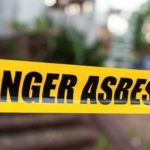By Dr David Milecki and Professor Paul Van Buynder
There has been a lot of discussion about industries screening asymptomatic staff for COVID-19. In Victoria, the government has mandated some high-risk workplaces to regularly test their employees.
What is happening?
In a media release, the Victoria Premier recently announced the commencement of industry-based routine testing for COVID stating:
“ All medium and large employers in the meat, poultry, seafood processing and supermarket and refrigerated distribution sectors will be asked to ensure that a quarter of their workforces are tested each week. This applies to all workers operating from their work premises – and will lead to the majority of a workforce being tested over the course of a month.”
Implementation is to commence immediately with staff tested at existing facilities or tested on-site by appointment for remote and rural businesses. Asymptomatic persons are not required to isolate after testing.
In addition, it is anticipated that the existing testing programs in place in some hospitals will increase soon to also include regular testing for staff in all aged care and many other health settings.
Why?
Industry-based COVID-19 screening is being introduced to monitor areas associated with high transmission in the past.
In the past, screening with an invasive and somewhat expensive test for a low incidence condition would not meet standard guidelines for the introduction of a screening program.
The standard PCR test in use has high sensitivity and specificity when used at the right time in the course of an illness with SARS-CoV-2 but, as cases fall, this proposed program may lead to an increase in the number of false positives and negatives.
Where are we going?
Ultimately, the search is on for a rapid test that gives answers in minutes and preferably with saliva or a finger prick test that is minimally invasive. These tests are largely based on the detection of viral antigens. Many of these tests are already available and press releases abound from researchers and companies extolling the virtues of their particular process.
A recent position statement from the Royal College of Pathologists in Australia2 has advised that these rapid antigen tests should not be used in Australia because of their relatively low sensitivity and the chance that they would lead to cases being missed and hide the true spread of infection.
The Public Health Laboratory Network (PHLN) & the Communicable Diseases Network of Australia (CDNA) also have a joint group starting to look at these technologies, but not yet at any specific tests. It is likely they will advise against general use diagnostically because of performance limits, but their use under expert supervision in specific public health settings would be supported.
Antigen tests are being used by the World Health Organisation to improve testing access in low/middle-income countries and, one of the tests, marketed by Quidel, is planned for a roll out in the US, a high incidence country.
Antigen tests have clear public health use in cluster settings to encourage large numbers of potential contacts of the case to be tested quickly before they also spread disease.
Four of these tests have been licensed by the Australian Therapeutic Goods Association although none are yet available. The Quidel test looks the best of those available on the sensitivity scale for SARS-CoV-2 with a documented 96.7% sensitivity and 100% specificity. Trials continue in Australia with this product including in aged care settings. These tests will become available for purchase soon in Australia.
Quidel is also working on dual influenza + COVID-19 test which they expect to register in Australia shortly.
In addition to the above trials and use of antigen tests, the Victorian Infectious Disease Laboratory is developing a saliva test which looks promising. The end game of this program is technology transfer to other diagnostic labs to do workplace surveillance testing at scale.
What do industries do now?
Organisations required by Government policy to test staff should continue to use available testing sites utilising nasal swabs and PCR tests. They will need to develop a mechanism for linking testing results to worker attendance, as their program rolls out.
Organisations contacted by companies offering programs with COVID-19 antigen testing kits should resist purchasing these while awaiting further information about the test quality and updated statements from specialty groups involved in verification processes.
Injurynet Medical Advisors can support companies with plans to integrate this testing into their COVID-19 recovery plan and mechanisms for linking testing results to worker attendance.




